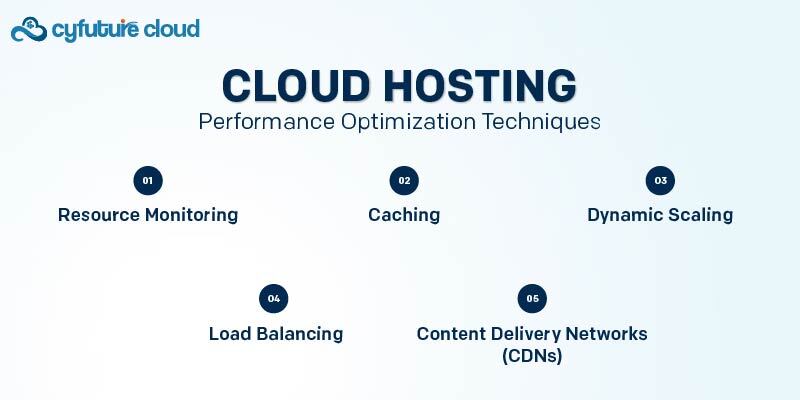Get 69% Off on Cloud Hosting : Claim Your Offer Now!
- Products
-
Compute
Compute
- Predefined TemplatesChoose from a library of predefined templates to deploy virtual machines!
- Custom TemplatesUse Cyfuture Cloud custom templates to create new VMs in a cloud computing environment
- Spot Machines/ Machines on Flex ModelAffordable compute instances suitable for batch jobs and fault-tolerant workloads.
- Shielded ComputingProtect enterprise workloads from threats like remote attacks, privilege escalation, and malicious insiders with Shielded Computing
- GPU CloudGet access to graphics processing units (GPUs) through a Cyfuture cloud infrastructure
- vAppsHost applications and services, or create a test or development environment with Cyfuture Cloud vApps, powered by VMware
- Serverless ComputingNo need to worry about provisioning or managing servers, switch to Serverless Computing with Cyfuture Cloud
- HPCHigh-Performance Computing
- BaremetalBare metal refers to a type of cloud computing service that provides access to dedicated physical servers, rather than virtualized servers.
-
Storage
Storage
- Standard StorageGet access to low-latency access to data and a high level of reliability with Cyfuture Cloud standard storage service
- Nearline StorageStore data at a lower cost without compromising on the level of availability with Nearline
- Coldline StorageStore infrequently used data at low cost with Cyfuture Cloud coldline storage
- Archival StorageStore data in a long-term, durable manner with Cyfuture Cloud archival storage service
-
Database
Database
- MS SQLStore and manage a wide range of applications with Cyfuture Cloud MS SQL
- MariaDBStore and manage data with the cloud with enhanced speed and reliability
- MongoDBNow, store and manage large amounts of data in the cloud with Cyfuture Cloud MongoDB
- Redis CacheStore and retrieve large amounts of data quickly with Cyfuture Cloud Redis Cache
-
Automation
Automation
-
Containers
Containers
- KubernetesNow deploy and manage your applications more efficiently and effectively with the Cyfuture Cloud Kubernetes service
- MicroservicesDesign a cloud application that is multilingual, easily scalable, easy to maintain and deploy, highly available, and minimizes failures using Cyfuture Cloud microservices
-
Operations
Operations
- Real-time Monitoring & Logging ServicesMonitor & track the performance of your applications with real-time monitoring & logging services offered by Cyfuture Cloud
- Infra-maintenance & OptimizationEnsure that your organization is functioning properly with Cyfuture Cloud
- Application Performance ServiceOptimize the performance of your applications over cloud with us
- Database Performance ServiceOptimize the performance of databases over the cloud with us
- Security Managed ServiceProtect your systems and data from security threats with us!
- Back-up As a ServiceStore and manage backups of data in the cloud with Cyfuture Cloud Backup as a Service
- Data Back-up & RestoreStore and manage backups of your data in the cloud with us
- Remote Back-upStore and manage backups in the cloud with remote backup service with Cyfuture Cloud
- Disaster RecoveryStore copies of your data and applications in the cloud and use them to recover in the event of a disaster with the disaster recovery service offered by us
-
Networking
Networking
- Load BalancerEnsure that applications deployed across cloud environments are available, secure, and responsive with an easy, modern approach to load balancing
- Virtual Data CenterNo need to build and maintain a physical data center. It’s time for the virtual data center
- Private LinkPrivate Link is a service offered by Cyfuture Cloud that enables businesses to securely connect their on-premises network to Cyfuture Cloud's network over a private network connection
- Private CircuitGain a high level of security and privacy with private circuits
- VPN GatewaySecurely connect your on-premises network to our network over the internet with VPN Gateway
- CDNGet high availability and performance by distributing the service spatially relative to end users with CDN
-
Media
-
Analytics
Analytics
-
Security
Security
-
Network Firewall
- DNATTranslate destination IP address when connecting from public IP address to a private IP address with DNAT
- SNATWith SNAT, allow traffic from a private network to go to the internet
- WAFProtect your applications from any malicious activity with Cyfuture Cloud WAF service
- DDoSSave your organization from DoSS attacks with Cyfuture Cloud
- IPS/ IDSMonitor and prevent your cloud-based network & infrastructure with IPS/ IDS service by Cyfuture Cloud
- Anti-Virus & Anti-MalwareProtect your cloud-based network & infrastructure with antivirus and antimalware services by Cyfuture Cloud
- Threat EmulationTest the effectiveness of cloud security system with Cyfuture Cloud threat emulation service
- SIEM & SOARMonitor and respond to security threats with SIEM & SOAR services offered by Cyfuture Cloud
- Multi-Factor AuthenticationNow provide an additional layer of security to prevent unauthorized users from accessing your cloud account, even when the password has been stolen!
- SSLSecure data transmission over web browsers with SSL service offered by Cyfuture Cloud
- Threat Detection/ Zero DayThreat detection and zero-day protection are security features that are offered by Cyfuture Cloud as a part of its security offerings
- Vulnerability AssesmentIdentify and analyze vulnerabilities and weaknesses with the Vulnerability Assessment service offered by Cyfuture Cloud
- Penetration TestingIdentify and analyze vulnerabilities and weaknesses with the Penetration Testing service offered by Cyfuture Cloud
- Cloud Key ManagementSecure storage, management, and use of cryptographic keys within a cloud environment with Cloud Key Management
- Cloud Security Posture Management serviceWith Cyfuture Cloud, you get continuous cloud security improvements and adaptations to reduce the chances of successful attacks
- Managed HSMProtect sensitive data and meet regulatory requirements for secure data storage and processing.
- Zero TrustEnsure complete security of network connections and devices over the cloud with Zero Trust Service
- IdentityManage and control access to their network resources and applications for your business with Identity service by Cyfuture Cloud
-
-
Compute
- Solutions
-
Solutions
Solutions
-
 Cloud
Hosting
Cloud
Hosting
-
 VPS
Hosting
VPS
Hosting
-
GPU Cloud
-
 Dedicated
Server
Dedicated
Server
-
 Server
Colocation
Server
Colocation
-
 Backup as a Service
Backup as a Service
-
 CDN
Network
CDN
Network
-
 Window
Cloud Hosting
Window
Cloud Hosting
-
 Linux
Cloud Hosting
Linux
Cloud Hosting
-
Managed Cloud Service
-
Storage as a Service
-
 VMware
Public Cloud
VMware
Public Cloud
-
 Multi-Cloud
Hosting
Multi-Cloud
Hosting
-
 Cloud
Server Hosting
Cloud
Server Hosting
-
 Bare
Metal Server
Bare
Metal Server
-
 Virtual
Machine
Virtual
Machine
-
 Magento
Hosting
Magento
Hosting
-
Remote Backup
-
 DevOps
DevOps
-
 Kubernetes
Kubernetes
-
 Cloud
Storage
Cloud
Storage
-
NVMe Hosting
-
 DR
as s Service
DR
as s Service
-
-
Solutions
- Marketplace
- Pricing
- Resources
- Resources
-
By Product
Use Cases
-
By Industry
- Company
-
Company
Company
-
Company
What is Cloud Hosting?
Table of Contents
In the modern digital environment, traditional hosting solutions often find it challenging to keep up with the changing needs of evolving businesses. Yet, cloud hosting presents an innovative answer beyond physical limits, opening up endless opportunities limited solely by your creativity.
The Rise of Cloud Hosting
The worldwide cloud computing market is projected to increase from $445.3 billion in 2021 to $947.3 billion by 2026, with a 16.3% CAGR. This rapid increase showcases how businesses of various sizes increasingly turn to cloud hosting solutions to take advantage of their scalability, flexibility, and cost-effectiveness.
Understanding Cloud Hosting
Cloud hosting involves outsourcing a business’s computing and storage resources to a service provider that charges a utility-based cost for infrastructure services. The cloud service provider controls the infrastructure, security, maintenance, and configuration of the cloud. At the same time, clients are occasionally permitted to scale servers in real-time and modify applications and hardware.
Types of Cloud Hosting

There are four main types of cloud hosting, each with a different distribution of resources and varying degrees of involvement from your organization.
Public Cloud
A public cloud is an infrastructure where maintenance, availability, computing resources, and underlying hardware are all overseen by an outside entity. You don’t need to possess your own servers; you can expand as required.
Private Cloud
A private cloud is an environment for cloud computing that you design and oversee yourself and that your company subsequently uses. Your job is to manage all underlying computer resources, including memory, CPU, and storage. In certain businesses, a corporate or internal cloud is another name for a private cloud.
Hybrid Cloud
An IT architecture that blends public and private cloud technologies is known as a hybrid cloud. In a hybrid cloud, you may run applications in several contexts without sacrificing performance and store data in various locations. Your hybrid cloud solution combines all the infrastructure that you have accessible with third-party services.
Managed Cloud Hosting
In managed cloud hosting services, you collaborate with a third-party, public cloud provider but give them complete authority over all business operations. The third-party supplier, for instance, will be in charge of security, backups, patching, monitoring, incident response, and issue detection.
Working with managed cloud hosting gives you access to their unique automation, knowledge, and skills. This approach minimizes risk and allows you to focus on primary business obligations.
Key Perks of Cloud Hosting
Cloud hosting is advantageous over traditional hosting services in numerous ways. This makes it a good option for any business, regardless of size.
Scalability and Flexibility
One advantage of cloud hosting is its scalability, which allows resources to be added or removed as needed. This enables businesses to adjust to evolving requirements, such as unexpected surges in traffic or seasonal variations, without expensive hardware upgrades or operational interruptions.
Cost-Effectiveness
Cloud hosting is often cheaper than traditional hosting options. It removes the upfront requirement of investing in hardware and maintenance. Cloud vendors offer a usage-based model. It allows companies to purchase only the resources they require and, in the process, reduces costs.
Improved Performance
Cloud hosting utilizes numerous servers to increase performance and enhance reliability. Often, it has components such as content delivery networks (CDNs) that increase the speed of a website and reduce delay. Load balancing techniques ensure that the traffic received is divided and distributed among the various servers to ensure that one server is not congested with too much load.
Enhanced Security
Cloud hosting services employ high levels of security to protect information and applications from hacking incidences. Several of these help to guard against cyber dangers, including:
- Firewalls
- End-to-end encryption
- DDoS mitigation
Using several data centers located in different regions while hosting on the cloud achieves disaster recovery and higher availability.
Choosing the Right Cloud Hosting Provider
It is also essential to choose a provider who understands your business and its goals. When selecting a cloud hosting service, consider numerous elements.
Reliability
Select the cloud hosting providers with good uptime and stability records with their servers.
Security
Make sure that the provider is employing secure measures that will protect your information and programs.
Scalability
Select a provider who can scale your server and increase or decrease your capacity according to your business needs.
Customer Support
Evaluate the provider’s customer support quality and responsiveness.
Pricing
Evaluate pricing options and confirm they match your financial constraints and resource needs.
Service Offerings
Evaluate the services and characteristics of the provider to determine if they meet the needed criteria.
Migrating to Cloud Hosting
Moving your website or application to the cloud requires multiple steps. Numerous cloud hosting companies provide migration services to help with the transition and guarantee a smooth move.
Preparing for Migration
Assess your current hosting setup.
Determine the resource requirements of the website or application, such as storage, traffic, and computational power.
Choose a cloud hosting provider.
Select a provider that aligns with your business needs and migration requirements.
Plan your migration strategy.
Create a clear roadmap on data and application migration processes to the cloud.
Test and validate
Thoroughly test your website or application after migration to ensure it’s functioning correctly.
Optimizing Cloud Hosting Performance
Optimizing your setup for performance is essential to maximize the potential of cloud hosting. Utilizing methods like tracking resource usage, implementing caching systems, optimizing resource distribution, adjusting resource scale as needed, and consistently reviewing and tweaking your cloud hosting setup can enhance performance and efficiency.
Performance Optimization Techniques

Resource Monitoring
Monitor resource usage to pinpoint bottlenecks and enhance performance.
Caching
Deploy caching systems to lower server workload and enhance response times.
Dynamic Scaling
Scale resources automatically based on demand to maintain optimal performance.
Load Balancing
Spread traffic among numerous servers to avoid overwhelming them and enhance their dependability.
Content Delivery Networks (CDNs)
Implement CDNs to make content served from the closest servers to the user, hence reducing latency.
To Sum it Up!

Cloud hosting provides a revolutionary option for companies wanting to simplify processes, enhance efficiency, and boost security in the modern era. By utilizing cloud computing capabilities, companies can discover fresh possibilities for expansion and creativity, adjusting to the constantly evolving needs of today’s market.
At Cyfuture, we are dedicated to providing businesses with advanced cloud hosting solutions customized to suit their specific requirements. Our cloud hosting platform offers extensive support for content management systems and software development kits. It allows you to select the tools that fit your needs.
Enjoy the liberty and adaptability of cloud hosting with Cyfuture. Contact us now to discover additional information about our cloud hosting offerings and how we can assist your business in reaching new heights in the digital realm.
Recent Post

Stay Ahead of the Curve.
Join the Cloud Movement, today!
© Cyfuture, All rights reserved.
Send this to a friend

 Pricing
Calculator
Pricing
Calculator
 Power
Power
 Utilities
Utilities VMware
Private Cloud
VMware
Private Cloud VMware
on AWS
VMware
on AWS VMware
on Azure
VMware
on Azure Service
Level Agreement
Service
Level Agreement 


















